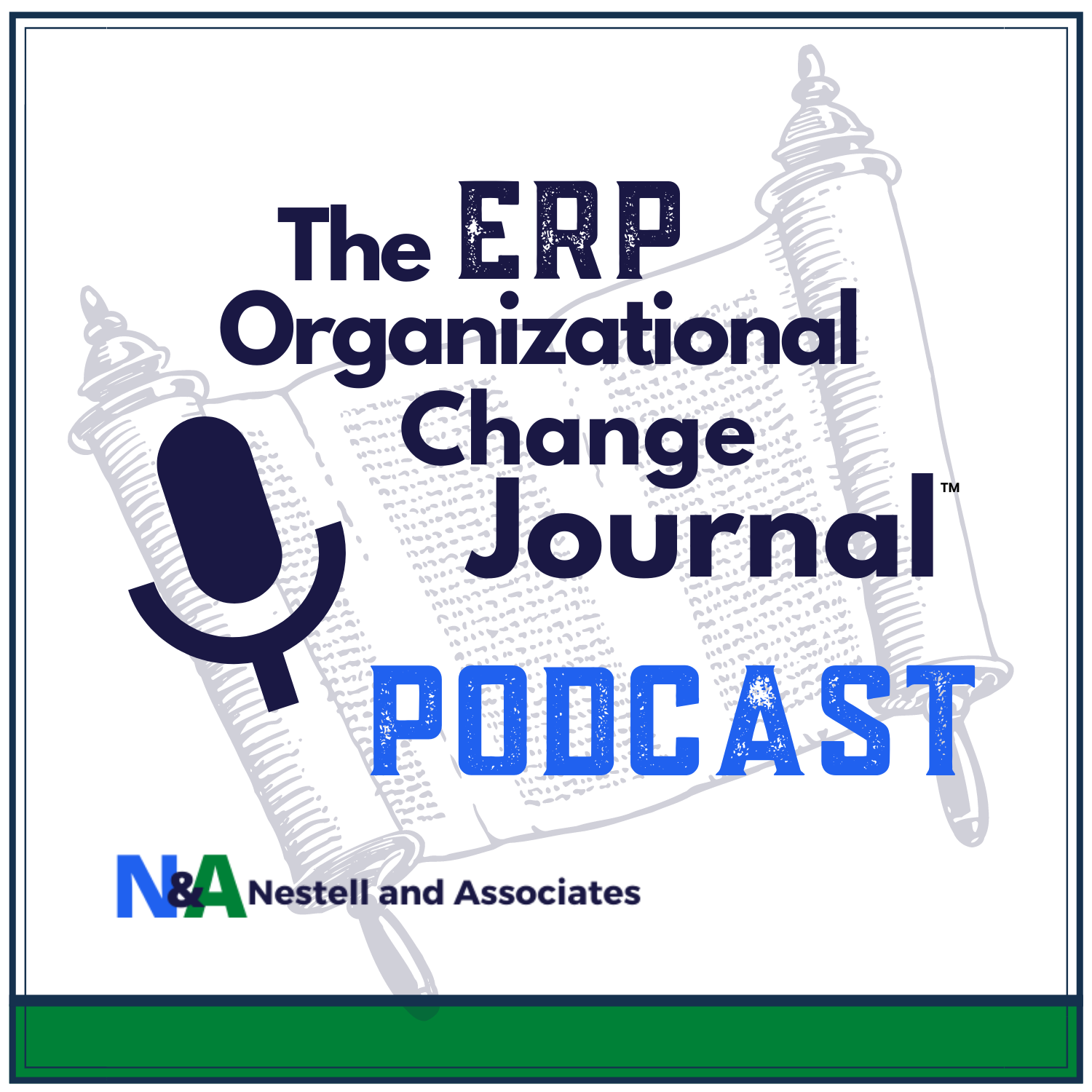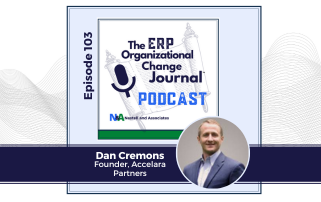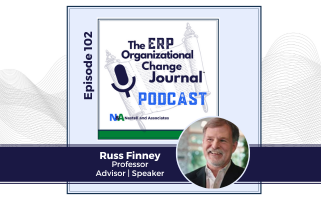About this Episode
In this episode, we dive into evaluating & facilitating positive ERP organizational change methods. We discuss making effective ERP organizational change through effective ERP project recovery, including data-driven change, team engagement and action, change monitoring and evaluation.
Dr. Jeanne Anderson is Professor Emerita at St. Cloud State University. Additionally, she is a Performance improvement specialist, change facilitator, and practitioner of problem-based learning and flipped instruction model. Jeanne specializes in community change, human performance technology, productivity improvement, data collection and analysis, and learning and organizational needs analysis. So let’s learn more as we further explore effective ERP organizational change methods with Jeanne.
More about Jeanne
Jeanne Anderson, EdD, CPT began facilitating change while working in the business world in training and performance improvement. She found, through 39 years of experience, including volunteer work business and academia, that there were many overlapping practices between change initiatives in business and the community. These practices are described in her book Making Change: Facilitating Community Action. She has interests in eLearning, intercultural issues in training and performance improvement. She is professor emerita of St Cloud State University.
Connect
- email address: Jeanne.Anderson@stcloudstate.edu
- Phone number (20)267-8981
More Resources
- ORCID
- Blog (contributor)
- Book: Anderson, J. L. H. & Pyle, M. H. (2021). Making Change: Facilitating Community Action. New York: Routledge.
- Book Chapter: Anderson, J. L. H. (2010). Collecting analysis data. In K. H. Silber & R. Foshay (Eds.), Handbook of training and improving workplace performance (Vol. I, pp. 95 – 143). San Francisco: John Wiley & Sons.
- Encyclopedia Entry: Anderson, J. L. H. (2015). Technologies for Persons With Hearing Impairments. In J. M. Spector (Ed.), SAGE Encyclopedia of Educational Technology. Thousand Oaks, CA: Sage.
- Encyclopedia Entry: Anderson, J. L. H. (2015). Technologies for Persons With Hearing Impairments. In J. M. Spector (Ed.), SAGE Encyclopedia of Educational Technology. Thousand Oaks, CA: Sage.
Stream this Episode Here and Subscribe on all Major Platforms
We want this podcast to be the most useful podcast you listen to. And we need your help! Please leave us a podcast review!
Episode Mentions
Ishikawa Diagram, https://en.wikipedia.org/wiki/Ishikawa_diagram
Senge, P. M. (2006). The fifth discipline: The art and practice of the learning organization. Currency.
Colorado State University Prevention Research Center, https://www.chhs.colostate.edu/prc/
Episode Highlights: ERP Organizational Change Methods
03:45 How do you go about understanding what the true and root opportunities are? Whether organizational ERP change, workplace performance improvement change, or even community change. How do members come to understand and agree on what change is needed? https://www.routledge.com/Making-Change-Facilitating-Community-Action/Anderson-Pyle/p/book/9780367444761
08:02 What does effective facilitation look like and how do you know?
13:40 You discuss “the “six stage model” for creating effective change. To get us started and just from a high-level (we’ll dive into some more details), can you share with our listeners what that is?
15:20 You discuss using data to drive change and change evaluation. How do you do that exactly? What type of data do you use?
20:26 Can data be used to advocate for team engagement? If so, how?
21:05 Your book “focuses on the human side of the change process while also teaching the practical skills necessary for individuals to reach their goal.” What exactly do you mean by “the human side”.
25:08 In your description you state that “Every community has issues or opportunities that need to be addressed. The expert knowledge of community members could be the key to creating lasting change. By making community members into facilitators, Making Change: Facilitating Community Action suggests they can guide community members through the process of making change and to help them determine their goals and methods.” Please explain to our listeners what you mean by “methods” and maybe provide an example?
30:37 In your book you discuss (Chapter 2 I believe) “Observe, Wonder and Reflect”. Is this difficult to teach and train? Is this an intentional activity that, like anything, takes practice?
32:46 You have a whole chapter called “Detours”? What does this mean and why?
35:47 This is one of my favorite topics in your book, “Mental Models and Frameworks”, can you share with our listeners what a mental model is and why it matters?
39:17 Do you have any tactical advice for “Change Resistance”?
43:18 Can you share with our listeners, what is “Force-Field Analysis”?
46:10 Just how critical is effective Monitoring and Evaluation? And, do you think that this is an area often minimized during an organizational or community change effort?
48:57 If you were going to give advice to an organization regarding successful ERP implementation as a tool for business continuous improvement and value realization, what would you say in terms of learning, leadership, and culture? How would you summarize this conversation?
More Related Episodes from TheERPocj & Blog Posts
Episode 2 Organizational Performance Improvement Dr. Richard E. Clark
Episode 3 Transformative Leader Ron J. West
Episode 9 The Performance and Organizational Development Dr. Timo Sandritter
Episode 15 Effective organizational Change Dr. Eric A. Canny
Episode 29 Iterative Management Ed Muzio
Episode 30 Evidence-Based Performance Improvement Guy Wallace
Latest Episodes
Human Capital in PE-Backed Companies: Strategies for Leadership and Talent Management
Human Capital in PE-Backed Companies: Strategies for Leadership and Talent ManagementEpisode Overview - PE-backed Human Capital Strategies Today’s episode centers on the pivotal role of human capital in PE-backed companies, emphasizing how strategic leadership and...
ERP Organizational Change: Technology Strategy
ERP Organizational Change: Technology Strategy and Keys to SuccessEpisode Overview - Technology Strategy In general, at the highest level of categorization, there seems to be consensus on the importance of people and culture, informational technology, and project...
AI and Private Equity Synergy: Fueling Business Transformation
AI and Private Equity Synergy: Fueling Business TransformationEpisode Overview - AI in PE Strategies In this episode, we explore how AI and Private Equity synergies are fueling business transformations and reshaping investment strategies and operational efficiencies....






0 Comments